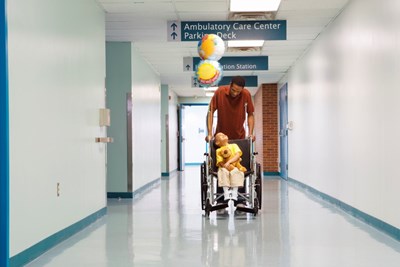Backpacks are replacing beach totes as it quickly becomes time for students to go back to school. The American College of Emergency Physicians provides these tips to help you prepare for your child's return to the classroom and help keep them safe and ensure the best possible care in the event of a medical issue or emergency.
Prepare ahead
- Get your child's flu shot and any other vaccinations as recommended by their physician. Children between the ages of 6 months and 5 years old are considered high risk for the flu, although kids of all ages should get vaccinated.
- Schedule medical and dental check-ups before school starts or as soon as possible.
- Update your child's medical history records and emergency medical contact information. List prescription medications, medical problems, previous surgeries, and pertinent family history.
- Ensure you, or your child’s school, have any necessary emergency medications, such as EpiPens.
- Make sure your child knows how to call for help in an emergency. Emergency contact numbers should be visible right next to every telephone in your home.
- Encourage your child to learn when to call 911 and give their name, address and a brief description of the problem.
Stay safe at school
- Keep your child home if they are not feeling well.
- Complete a consent-to-treat form. The form authorizes medical treatment, and you should give copies to the school nurse and day care providers.
- Work with your school nurse and appropriate care providers to develop action plans for health issues such as asthma or food allergies.
- If your child walks to school or to a bus stop, review the route with them. Be sure to point out traffic dangers or other potential hazards. For bus riders, establish a safe and clearly visible pick up/drop off spot, preferably with a group of children.
 American College of Emergency Physicians
American College of Emergency Physicians







